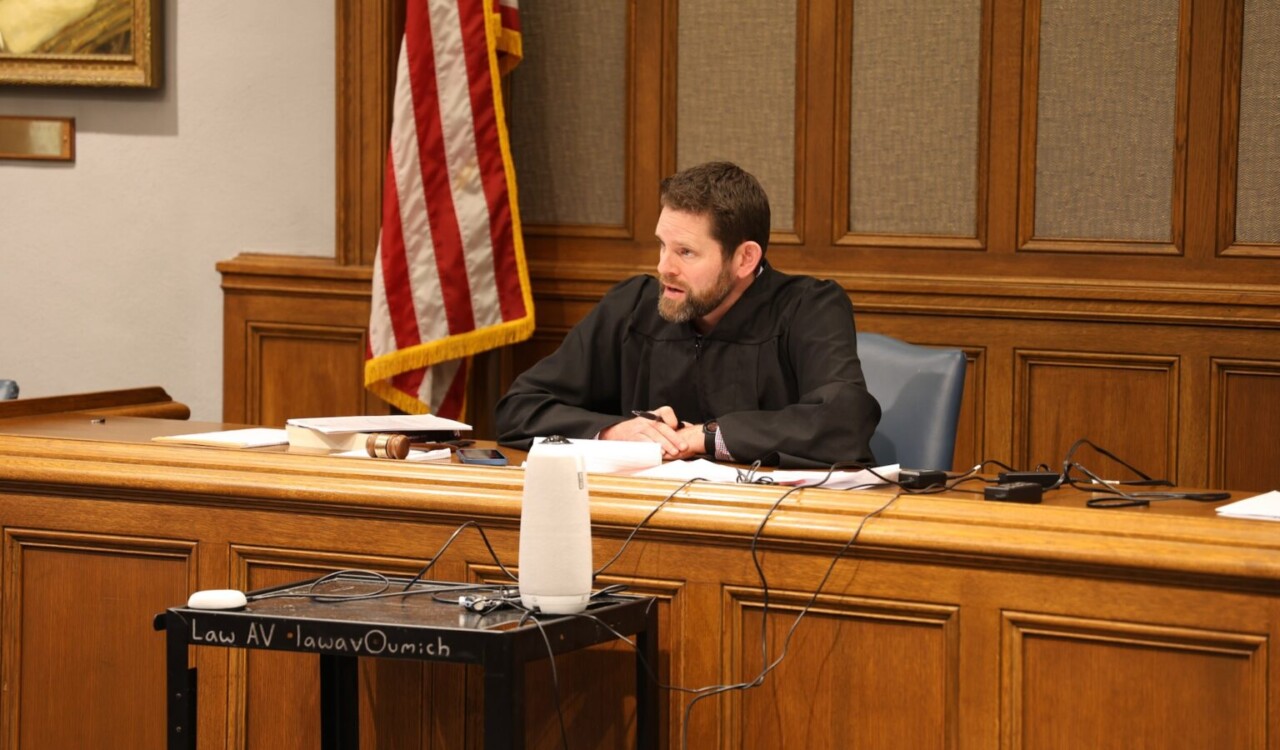When Marissa Collins sees her 10-year-old son Aiden doing homework in his bedroom, she is overcome with joy.
It’s a moment that might not have happened if the Veterans Legal Clinic at the University of Michigan Law School had not represented her in a 2023 dispute with her ex-husband, who wanted their son to remain in Jackson County.
Aiden, who struggled in his other school, now excels—reading at a 4th-grade level, three grades above where he was reading last year. He has a school counselor and a social worker to monitor his progress.
“He’s reached his goals,” Collins said, about her son’s learning. “He’s in his room reading. He had never done that before because he struggled, and now he likes attending school. His behavior has improved greatly.”
Collins, a resident of Brighton who served in the National Guard, is one of hundreds of veterans helped by the clinic.
Since opening in 2015, the clinic has provided free services to clients in a wide variety of civil matters such as family law (divorce, custody, support and visitation), eviction, consumer problems, foreclosure and employment cases.
Clinic director Matthew Andres said most veterans cannot afford to hire a lawyer and, as a population, have a disproportionately high need for attorneys in these legal areas.
“Many of our clients are hesitant to reach out to legal aid providers,” he said. “They don’t feel like they are necessarily worthy of assistance from general legal aid or social service providers and don’t want to ask for anything extra from those organizations. But when there is an organization that is specifically dedicated to veterans, then they are more likely to take advantage of that service.”
The clinic is the only legal services provider in Michigan focused exclusively on providing civil legal services to veterans. The clinic’s service area includes 10 counties in Southeast Michigan, which Andres says encompasses nearly 50% of all veterans in the state. There are approximately 40 veteran clinics nationwide, though most of them primarily handle veterans’ benefits, which is not the focus of Michigan’s clinic.
“Our clinic has had a significant impact on meeting the civil legal needs of Michigan veterans,” Andres said. “Every one of our veteran clients has been better off because of our services—whether we are successful in their case or not.”
In the Veterans Legal Clinic, clients are represented by U-M law students enrolled in the clinic. Andres explained that this is the first opportunity for clinic students “to get to feel what it is like to be a real lawyer.”
“They feel the responsibility of serving real clients,” he said, noting the clinic might have eight or 16 students at any given time who work in pairs handling cases. If their time in the clinic ends before the case resolves, students pass on everything they have learned about the case to the incoming law students.
Under the supervision of Andres and clinical fellow Carrie Floyd, the students are responsible for nearly everything related to their cases—including interviewing clients; investigating their claims; drafting pleadings; going to court; conducting depositions, trials and motion hearings; and negotiating with opposing parties.
Andres said the students balance clinic work and law classes, which can be challenging.
“But the students do a great job,” said Andres, a 2002 U-M law graduate who participated in the school’s general law clinic as a law student. “They put in a lot of work and are very devoted to their clients.”
The clinic annually assists 40-50 veterans, many of whom learn about the clinic’s services from organizations and professionals who work with veterans. They are often relieved to get legal help, Andres said.
That’s the sentiment expressed by Collins.
“If I hadn’t gone to the clinic, I don’t think somebody would have fought as hard (for me),” she said. “Nobody would have calmed my nerves as much as the students did; they had a lot of empathy.”
Collins, an auto technician, had previously worked with the clinic in 2018 on her divorce because she didn’t have money for a lawyer. It was important for her to have the right representation to ensure the best situation for her two children in a 50/50 custody arrangement.
The need for the clinic is great. For every veteran the clinic represents, they turn away three other cases. In many situations, the clinic’s clients do not qualify for other legal aid services because they have just enough in benefits or other money available to them that their income exceeds 200% of the poverty level, the income limit for Michigan legal aid programs, Andres said.
The clinic’s impact can sometimes go beyond the client. The clinic spurred the Michigan legislature to change the law, thanks to the claims the clinic brought in the case of a 67-year-old disabled and previously homeless veteran whom the state of Michigan barred from receiving food assistance because he did not disclose that he had felony drug convictions on his record.
They filed a federal lawsuit on behalf of Bill Bennett of Jackson against the state of Michigan. Rather than fight the lawsuit, the state eliminated the rule restricting people with felony drug convictions from receiving food assistance.
“The students did their homework,” Bennett said. “They kept me in the loop. I had fewer anxiety issues and knew what was happening in the case.
“I have faith in the University of Michigan Veterans Legal Clinic. I would seek their advice before seeing any other legal agency. Life is going well and I’m living in a better place.”
Andres was also pleased with the outcome.
“We were very proud of the victory we were able to get for Mr. Bennett and for all people with drug convictions who were unable to access food assistance,” he said.
